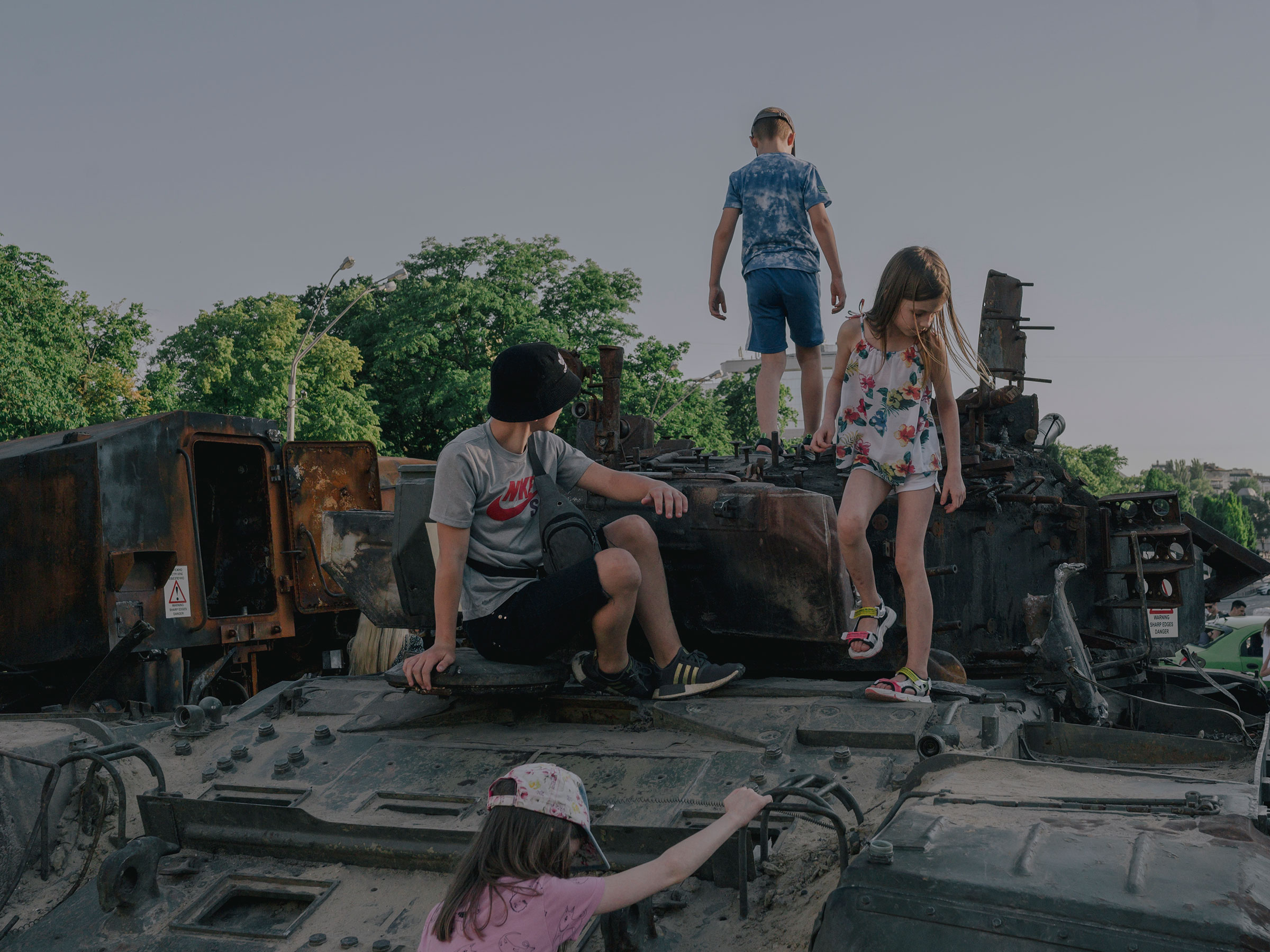If age is cumulative, the tallying up of events that weather the body and shape the mind, then Ukraine may not have many young people left.
Few here are unscarred by Russian President Vladimir Putin’s full-scale invasion of Ukraine on Feb. 24, which plunged millions of children and adolescents into a warped reality of curfews and roadblocks, mortar fire, and shallow graves. Today, soldiers at the front-line risk their lives so that young people can enjoy freedoms they feel too guilty to relish.
German photographer Fabian Ritter spent three weeks profiling young people in Kyiv Oblast, the province surrounding Ukraine’s capital, even sharing an apartment with some to better understand their perspectives. “Some part of their youth definitely got stolen,” Ritter tells TIME. “They all speak very seriously and very grownup about this war and what they hope for.”
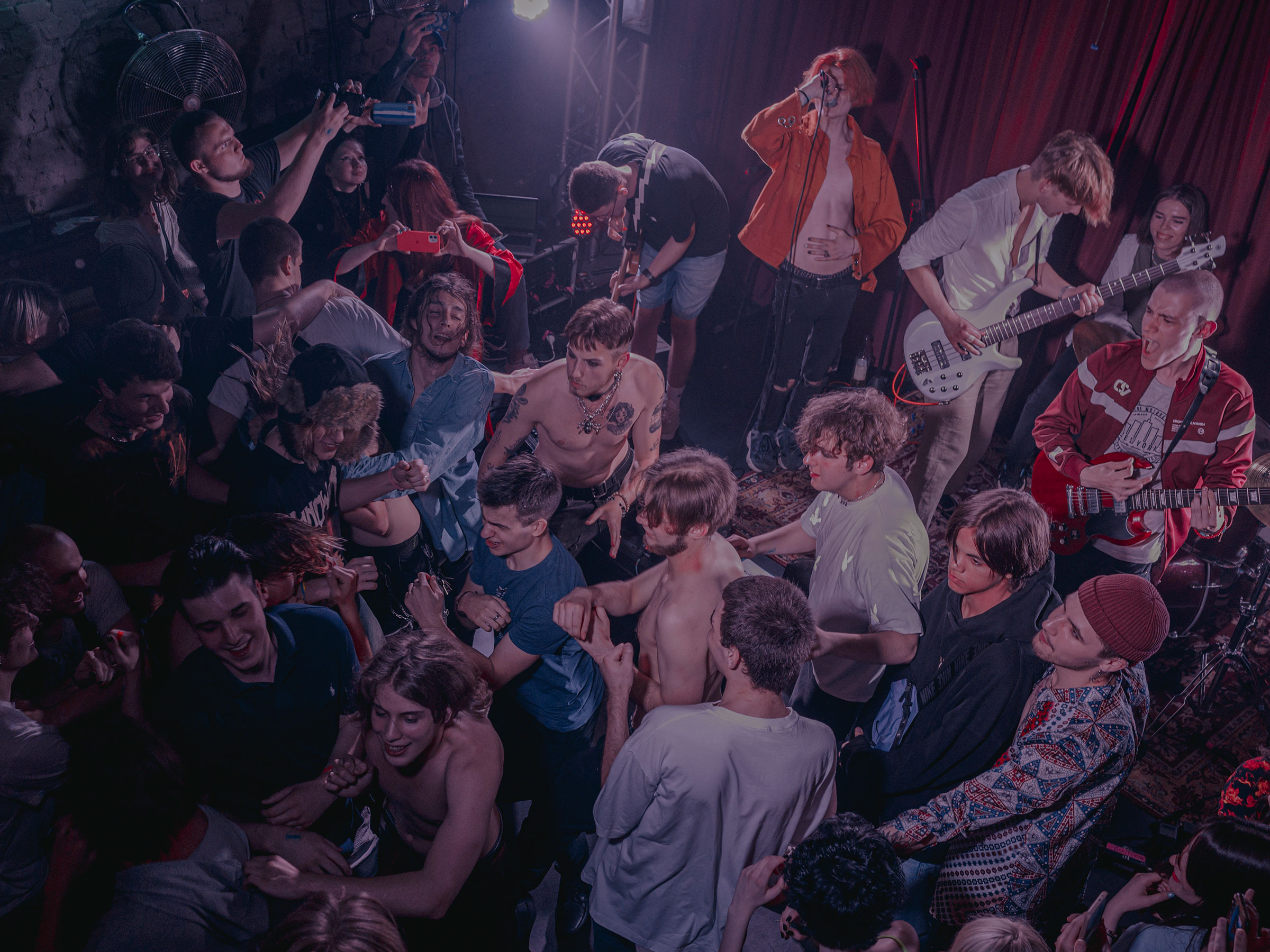
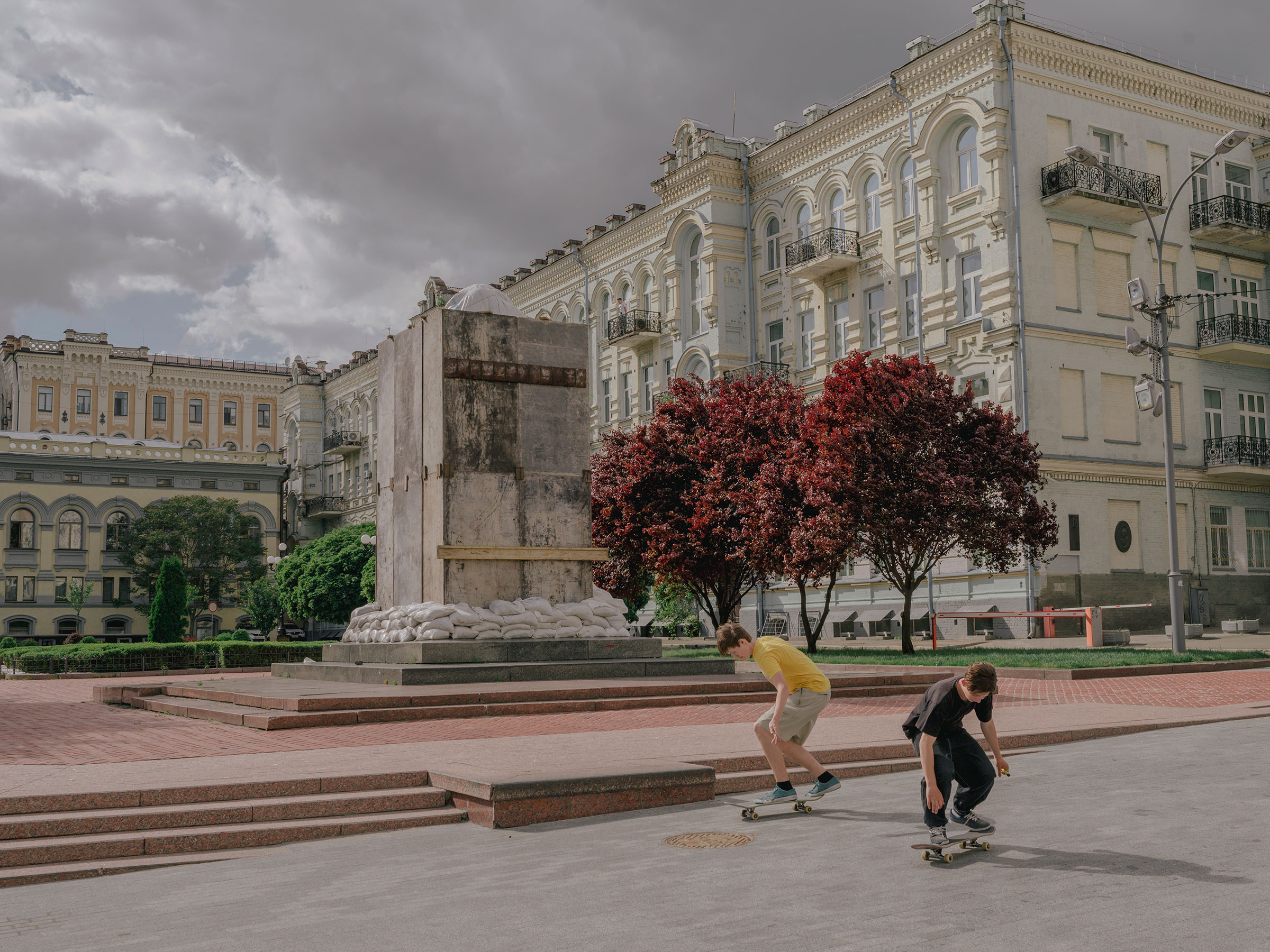
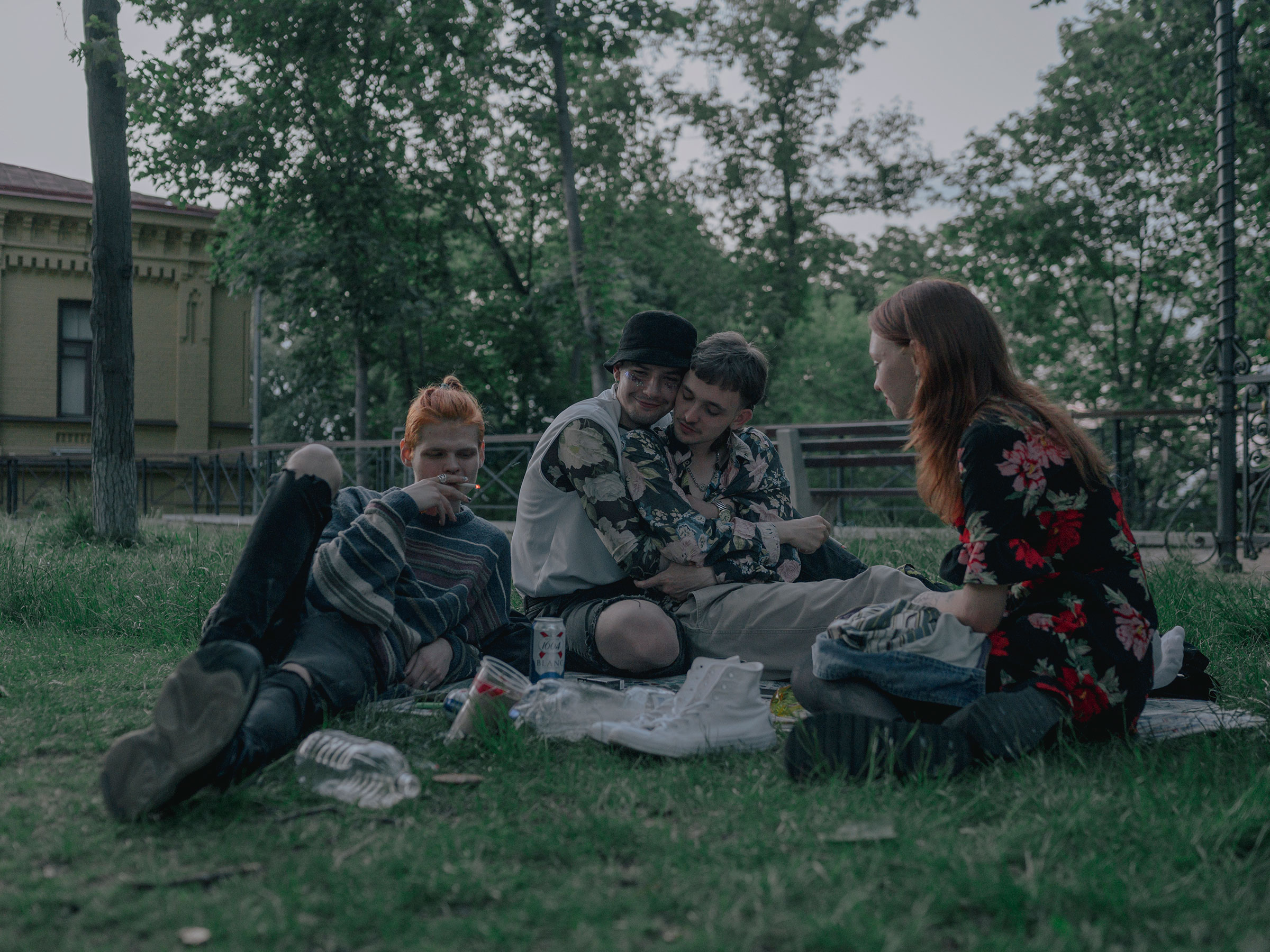
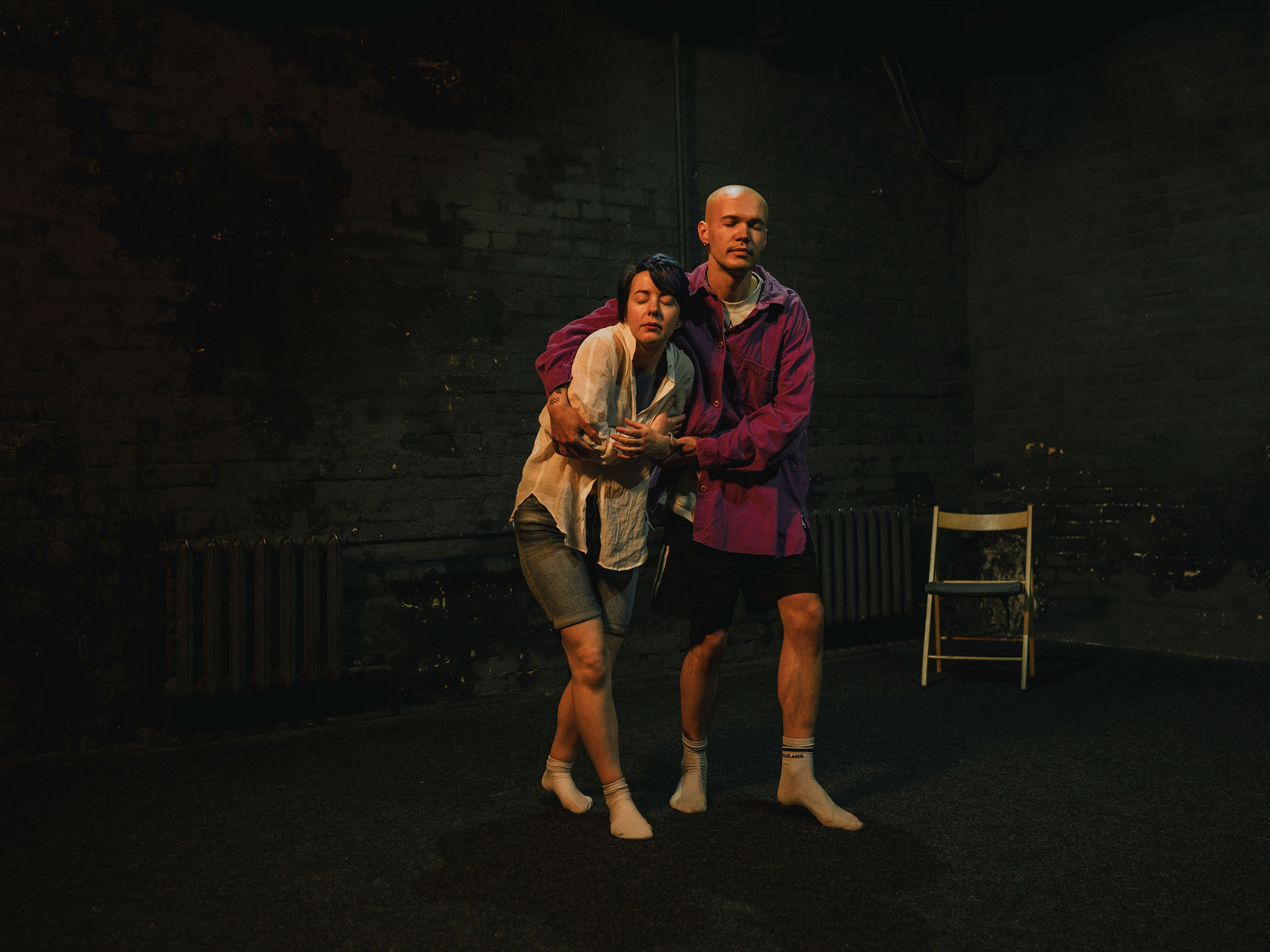
Youth should be a time for adventure and exploration, to unfurl the coddled layers of childhood and discover one’s inner self, before family and career take priority. But in Ukraine, this passage of self-discovery has been imprinted with a struggle for national survival.
“I met many people who may not have had a strong Ukrainian identity before, but feel more Ukrainian since the start of the war,” says Ritter. “Some told me they always wanted to travel the world, but now feel they really need to be here and to play a role in this war, even if it’s a small role.”
Read more: The Rock Star Poet Playing Concerts to Ukrainians Sheltering Underground From Russian Bombs
As fighting has receded from Kyiv to Ukraine’s southern and eastern regions, young people in the capital are caught between war and a veneer of normality, not knowing the right way to behave. For the very young, routed Russian tanks have become jungle gyms. For those in their teens and 20s, the dance clubs have reopened but few attend. Music venues also collect funds for the military. “No one really feels like partying,” says Ritter.
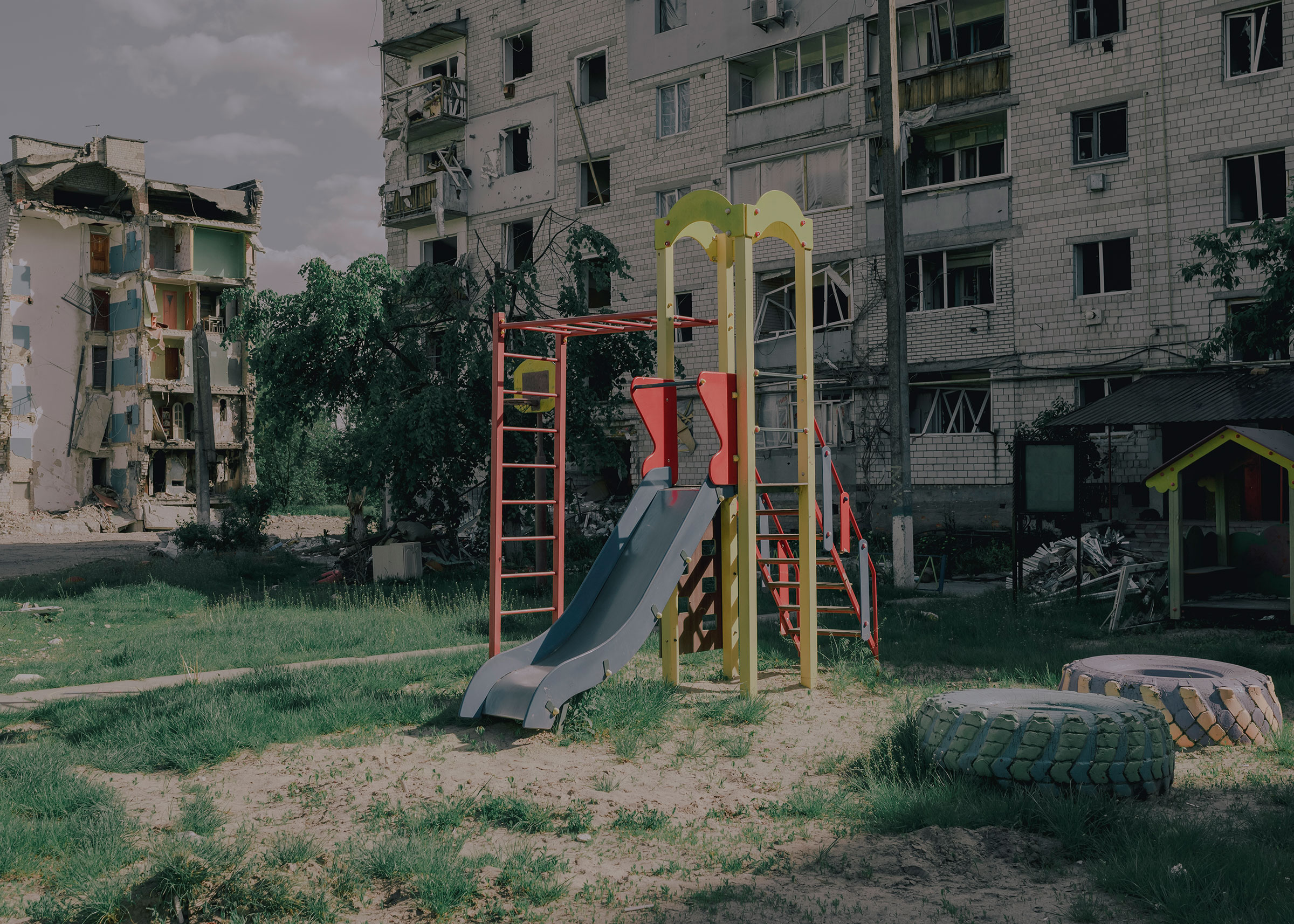
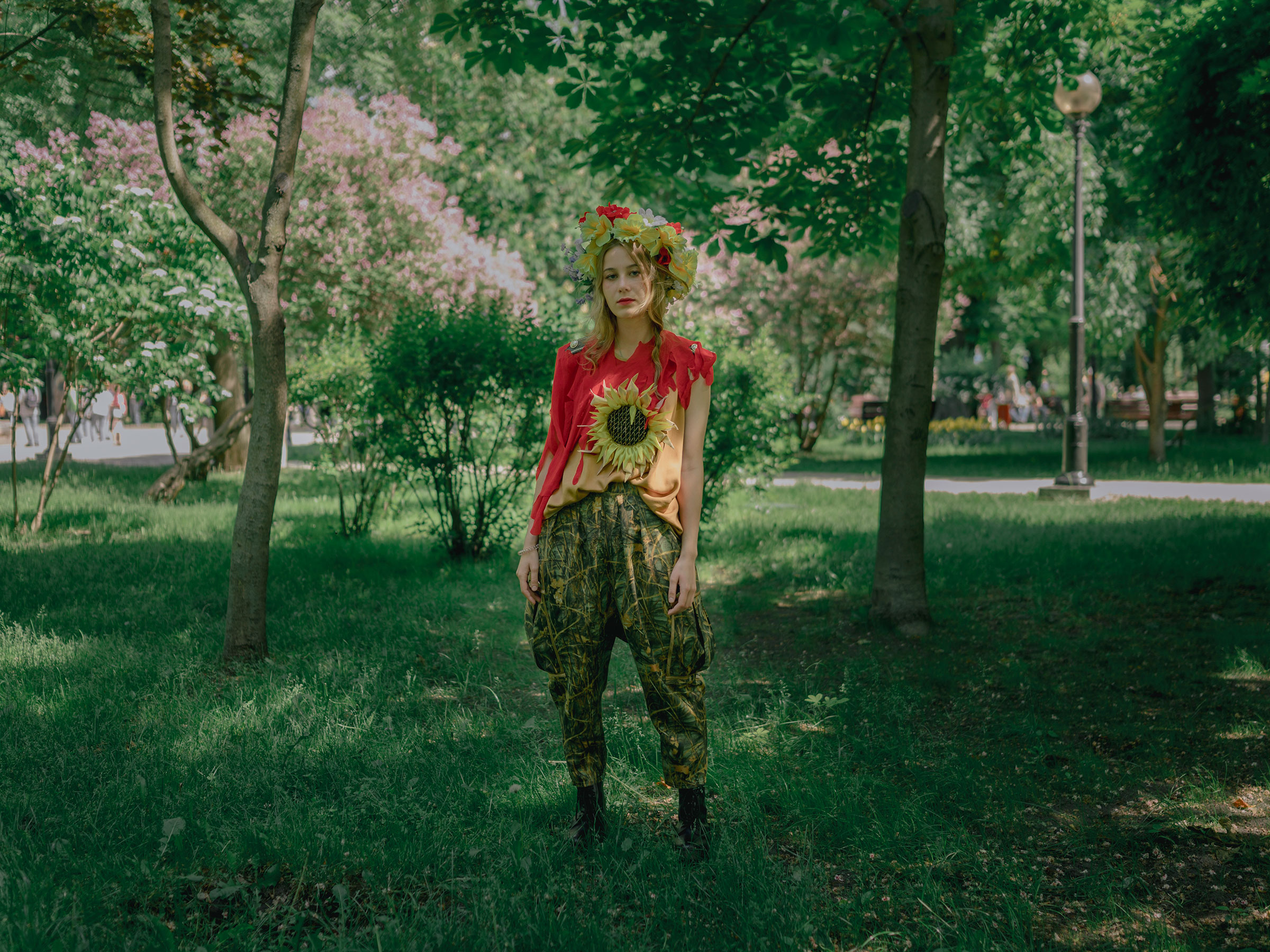
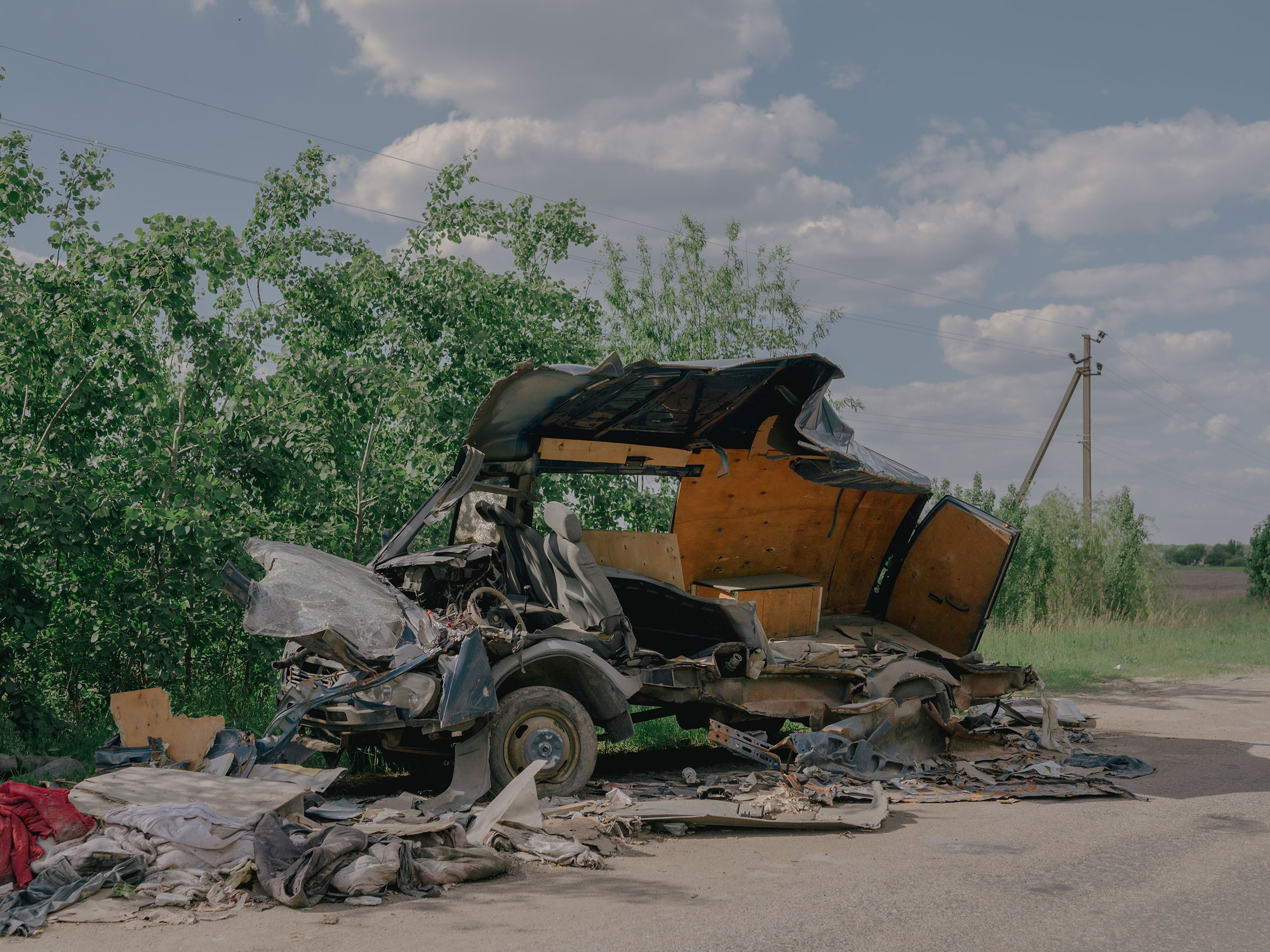
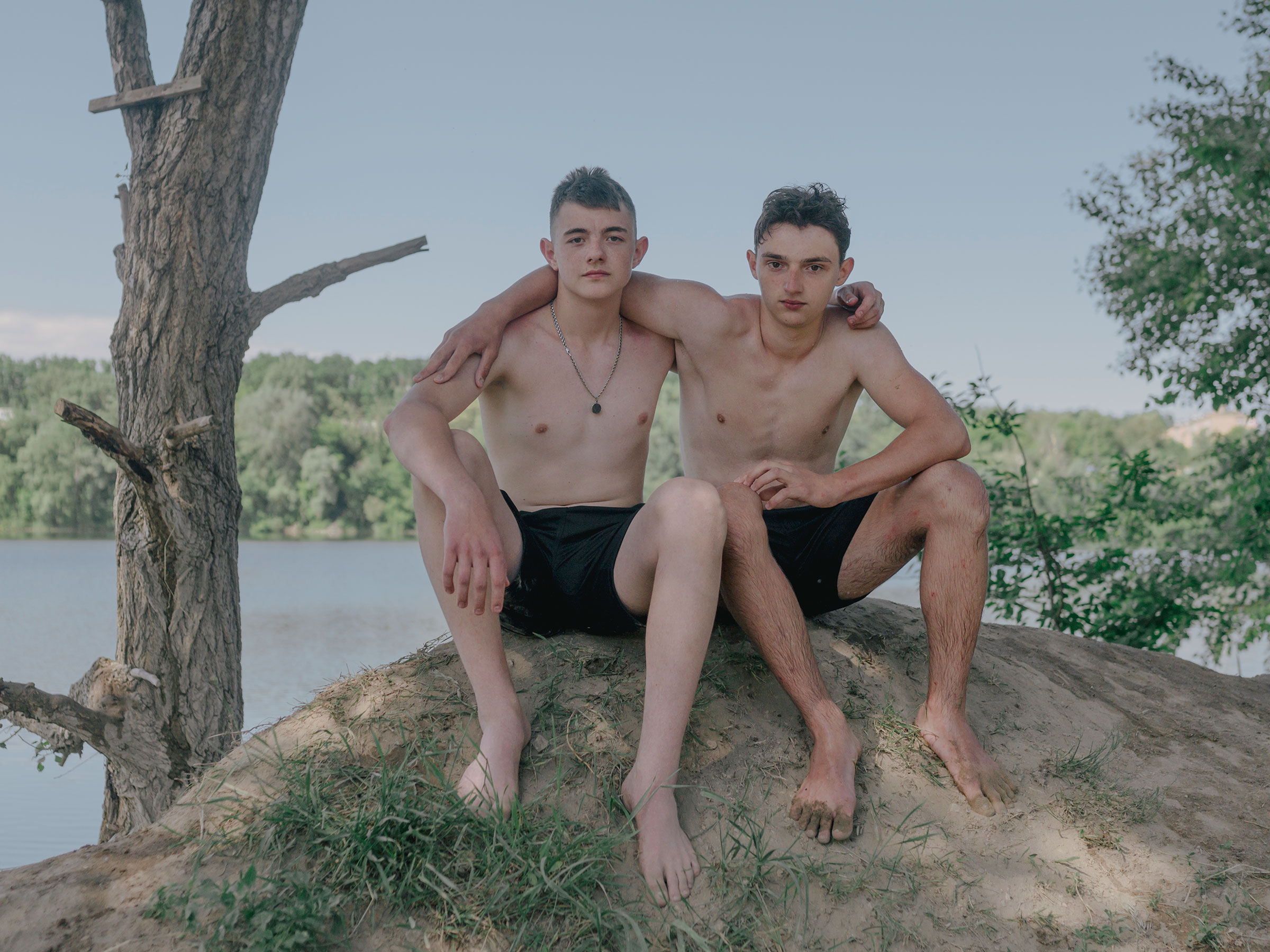
Kyiv’s youth find themselves in the third of, they hope, four stages of this national catastrophe. There was the lead up to the war, then the intense outbreak of fighting as Russian troops attempted to storm Kyiv, and now a grim purgatory, dreaming of the post-war stage to come. “Until the day of victory, most of them don’t make long-term plans,” says Ritter. “They are just trying to get through this stage now.”
Studies have been put on hold, with most young people taking whatever casual jobs they can find just to keep families fed. Those dreaming of careers in the arts or theater are especially at a loss, with opportunities originally curtailed by the COVID-19 pandemic put on permanent hiatus. Aspiring musicians busk in the street or work manual labor. Ritter also photographed LGBTQ+ youth trying to reconcile their own inchoate identity with a national one under attack.
In what he says is his favorite single shot, Ritter profiles two 15-year-old friends swimming at a lake nearby the Kyiv suburb of Bucha, now a byword for Russian war crimes. It was the first day they had met there since the war, resuming what had been a regular pastime, but now against a murderous backdrop. “Their parents tried to protect them from what they could have possibly seen,” says Ritter, “but they definitely heard explosions and things.”
Yet it’s ultimately impossible to shield Kyiv’s youth from the prospect that fighting may one day return, that it will be their turn next to pick up a gun. “Some of the young people were quite afraid,” says Ritter, “thinking maybe one day that they will have to fight, too.”
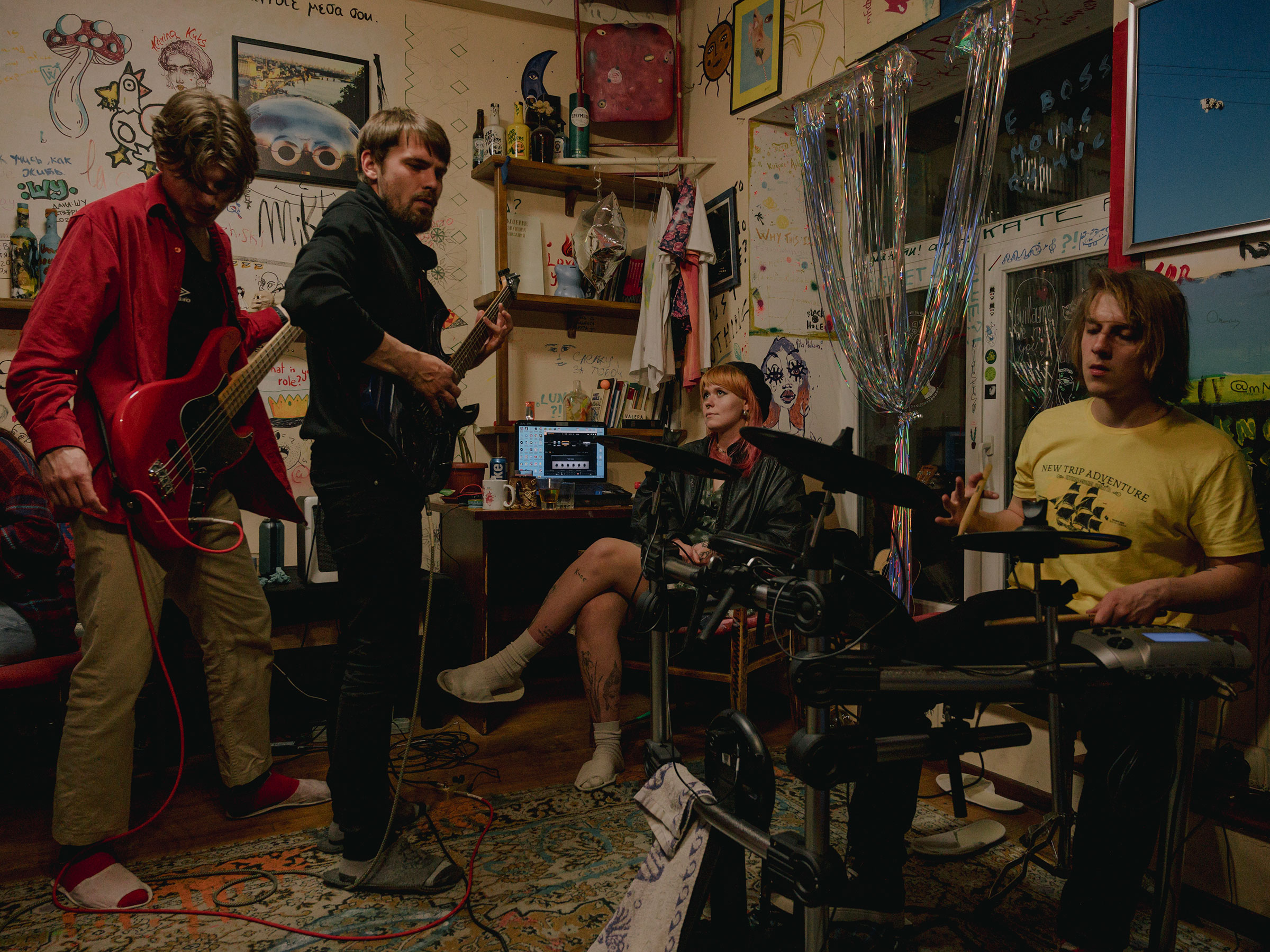
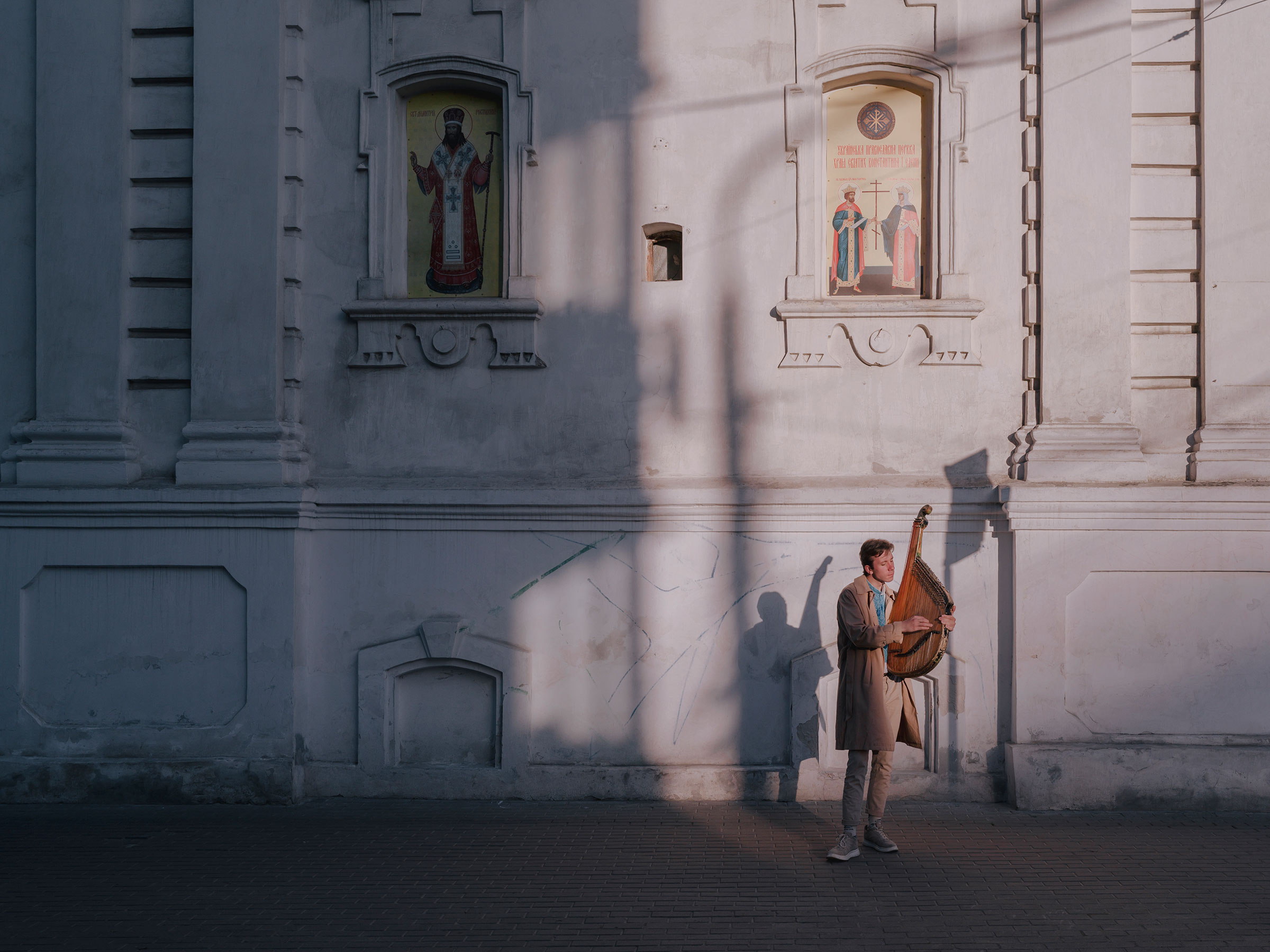
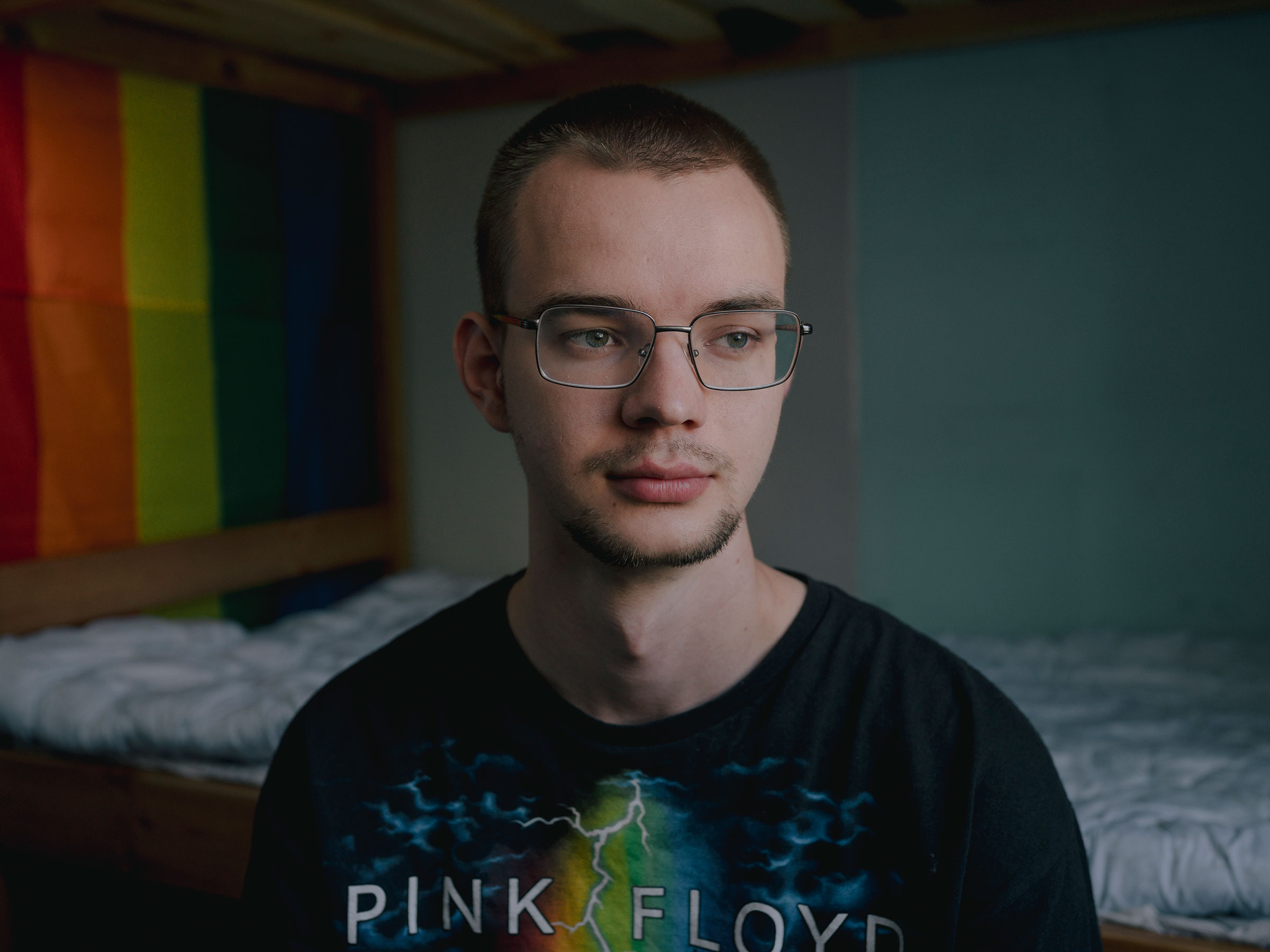
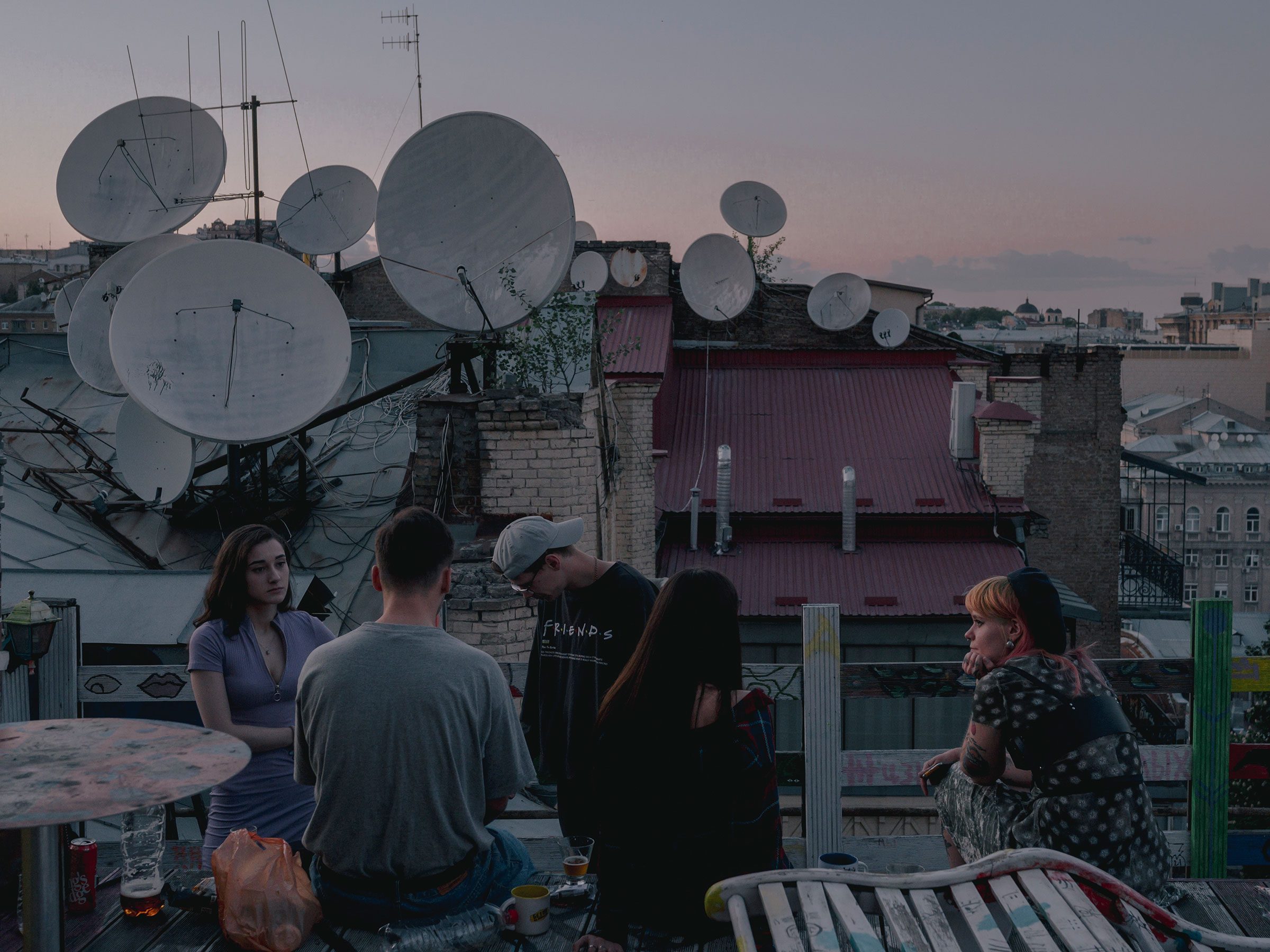
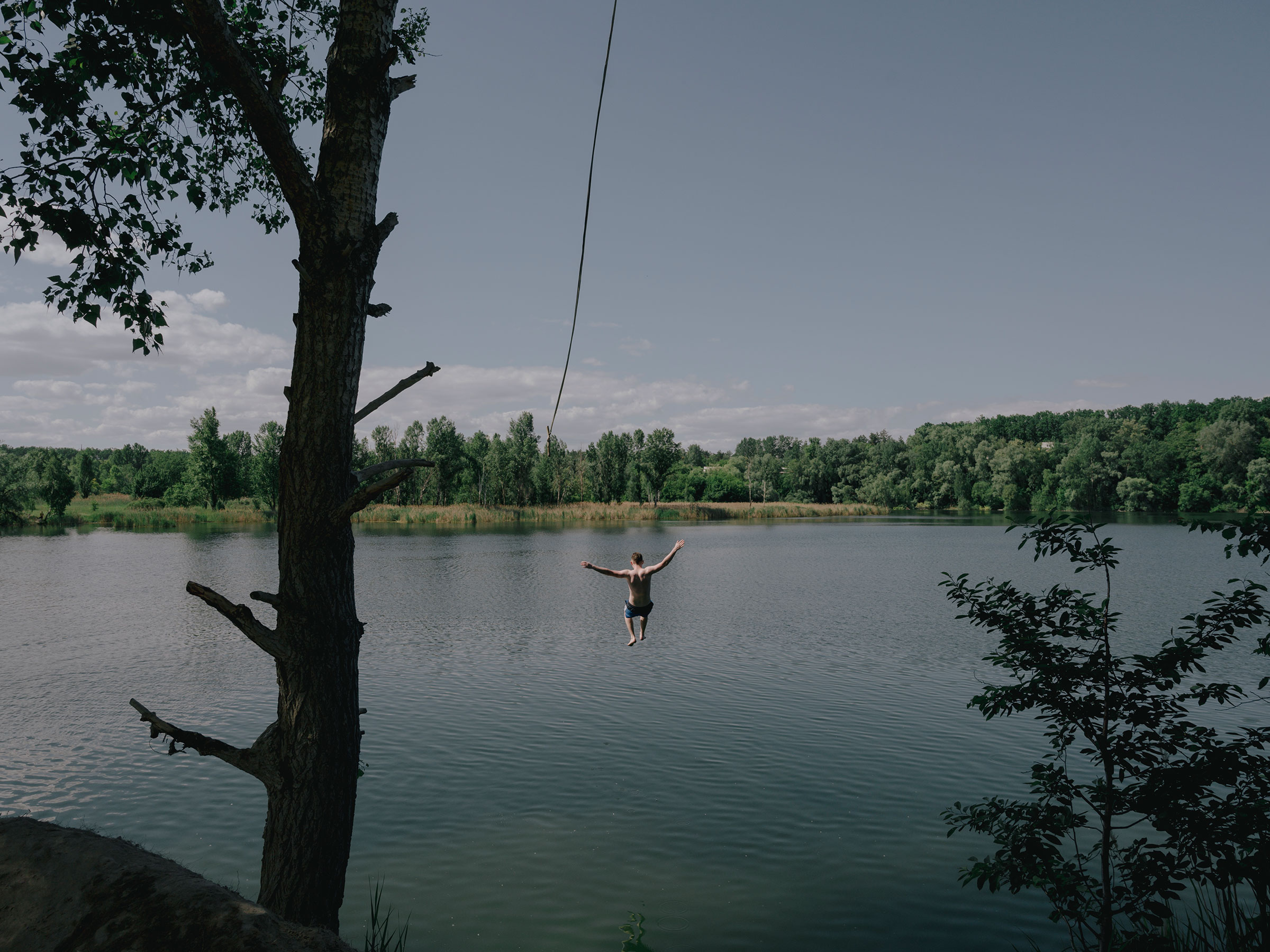
More Must-Reads from TIME
- Introducing the 2024 TIME100 Next
- The Reinvention of J.D. Vance
- How to Survive Election Season Without Losing Your Mind
- Welcome to the Golden Age of Scams
- Did the Pandemic Break Our Brains?
- The Many Lives of Jack Antonoff
- 33 True Crime Documentaries That Shaped the Genre
- Why Gut Health Issues Are More Common in Women
Write to Charlie Campbell at charlie.campbell@time.com
